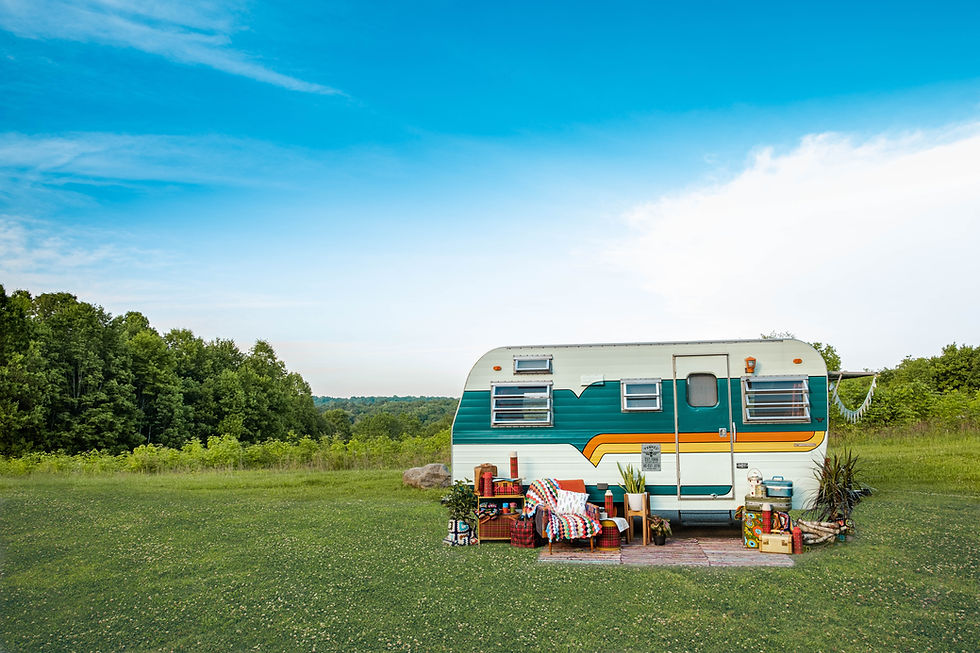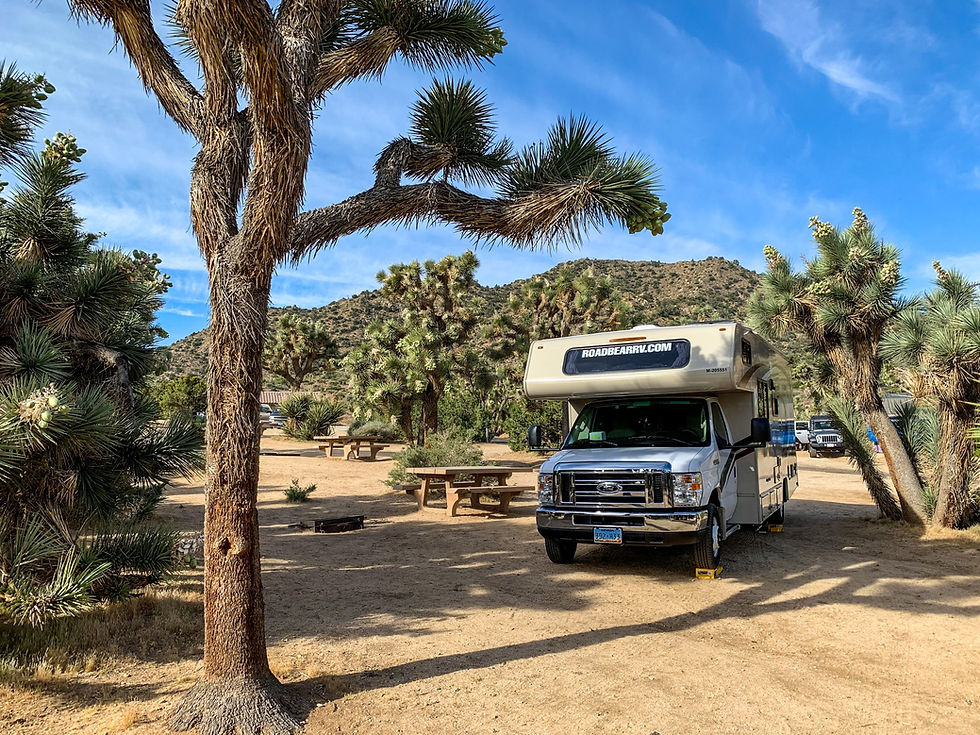
How You Ramble & Roll
If you want to travel around North America, you probably need wheels. People do walk, but it's a pretty big place. And while train trips are super cool, this isn't Europe. No Eurail Pass, and you're not going to be able to get many places beyond big cities that way. Same with the bus. We're mainly set up for our self-propelled vehicles over here, especially if you want to get a little bit lost and off the grid. Cross-country bicyclists are quite impressive, but also quite crazy.
That leaves us with the following as forms of conveyance for a good ramble across Canada, the U.S. and Mexico.
There has been an explosion of innovation in the RV category over the past ten years. Every category comes in a dizzying array of brands, luxury levels, and configuration choices. There is an option for every style, budget and personality. I've only outlined the big categories below, which is effectively the first choice you have to make before narrowing it it down within.
One useful rule of thumb: The longer you think you will stay put (snowbirds going to Florida for the season) the bigger the RV you will want. The more you want to ramble and explore, the smaller the RV you want. Or if I may paraphrase Einstein: as small as possible, but no smaller. We've met people that drive their small-ish travel trailer cross-country down to their big-ass 5th wheel trailer that's waiting for them in their snowbird spot.






Car Camping (& motel stays)

Not a bad way to go at all. We did it for 25 years before we bought Stanley. But you will feel the road. Best if only out for weeks at a time, not months.
Pros:
-
Easier to get a tent-sized campsite
-
Fuel economy
-
Nimble driving in traffic or parking lots
-
Enjoy great roads more (I recommend bringing the Porsche)
-
Motel sex
Cons:
-
Tent set up and tear down (a lot)
-
Rain
-
Motel shopping
-
Overpriced or scary motels
-
Not much space for gear and toys
Note: Car campers can add either a pop-up trailer or a tear drop trailer to most vehicles to upgrade their camp experience without going full RV.
Travel Trailer

I was adamant that this be our choice (Lori wanted a Sprinter Van). I wanted to set up camp and then have an untethered vehicle to roam about it, or to go get ice if I needed to, without having to effectively "break camp" each and every time, which is the case with any option that non-trailer option. That, and Airstreams are the bomb. But there are many, many trailer brands and styles to choose from.
Pros:
-
More space for your stuff
-
Stays set up in camp while you explore
-
Less expensive that motor coaches
Cons:
-
More difficult to maneuver and back up
Fifth Wheel

Sub-category of trailers with a unique set up that offers some advantages, and some disadvantages, over travel trailers.
Pros:
-
More nimble to drive and maneuver than travel trailer
-
Allows for longer length and weight than travel trailer
-
Better for longer stays in one spot
Cons:
-
More expensive than comparable travel trailer
-
Truck bed not available for gear as that is your hitch point
Camping Vans and Truck Campers

A great hybrid between car camping and an RV. Ideal for shorter trips, but still tougher to live out of longer term for couples. Nearly ideal for soloists.
Pros:
-
More space for gear and toys than a car
-
Sleep inside
-
More nimble to drive than an RV
-
Truck campers technically do detach, though you won't be doing it in camp too often
Cons:
-
Not as much space as you think (Tetris)
-
Have to "break camp" just to run an errand
-
Sprinters are pricey. Truck campers are less
Motor Coach

The classic that Winnebago popularized. Walter White cooked meth in his. Once upon a time, they were of notoriously bad quality. Today, you can spend as much on one as a yacht and they are appointed similarly. This is how rock bands travel. But due to the issue that you don't want to take it when you run out of beer, most people will tow a small car behind them, which kind of defeats the purpose of self-driving in my mind. They are also less rugged when it comes to rough roads than a pick-up plus trailer. And for many people this is precisely where you want to camp.
Pros:
-
Easier to drive than a trailer
-
Ideal for tailgating and urban camping
-
Good for longer stays in one spot
Cons:
-
Is your only vehicle unless you tow a car
-
Less able to reach rugged campgrounds and boondocking sites.
Tear Drop Trailer

Tear drops have really exploded in popularity of late. They do represent a baby-step toward an RV but can be towed by practically anything. Makes car camping more comfortable, but is still not that big a jump from tent camping at the end of the day.
Pros:
-
Adorable
-
Less $ than an travel trailer (but getting more expensive)
-
Gives you a real kitchen to work at
-
Inexpensive to tow with what you already own
Cons:
-
You can't stand up inside to get dressed
-
Tough to wait out a 2-day rain storm inside
-
Not that big an upgrade from car camping